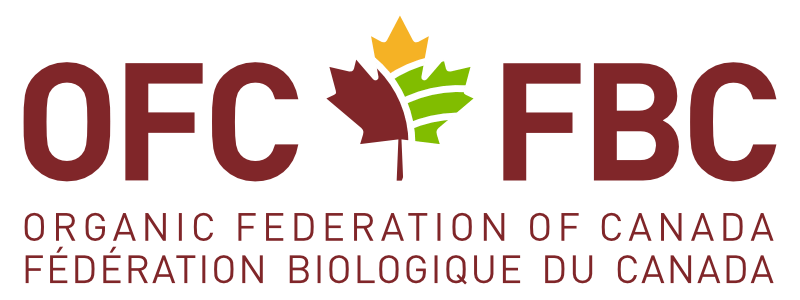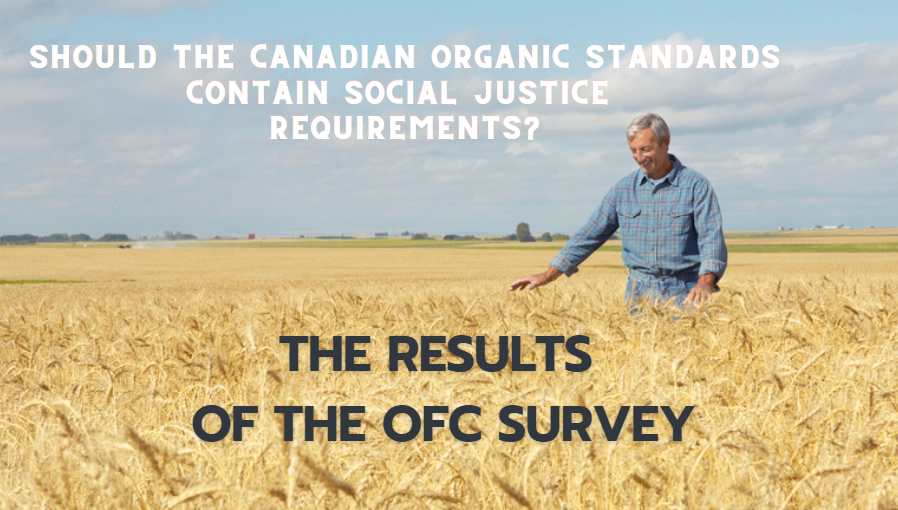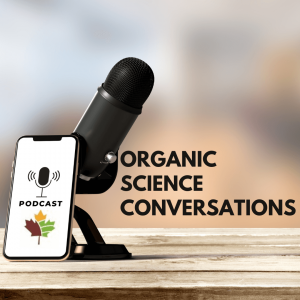The Success of Organic Research
Over the past 13 years, the Organic Science Clusters (OSC) have brought together organic farmers, researchers and students to improve and evolve organic farming practices.
A joint partnership between the Organic Federation of Canada (OFC) and the Organic Agriculture Centre of Canada (OACC), and led under Agriculture and Agri-Food Canada’s Canadian Agricultural Partnership Agri-Science Program, the Organic Cluster research activities aim to provide farmers with new ways to manage organic production systems.
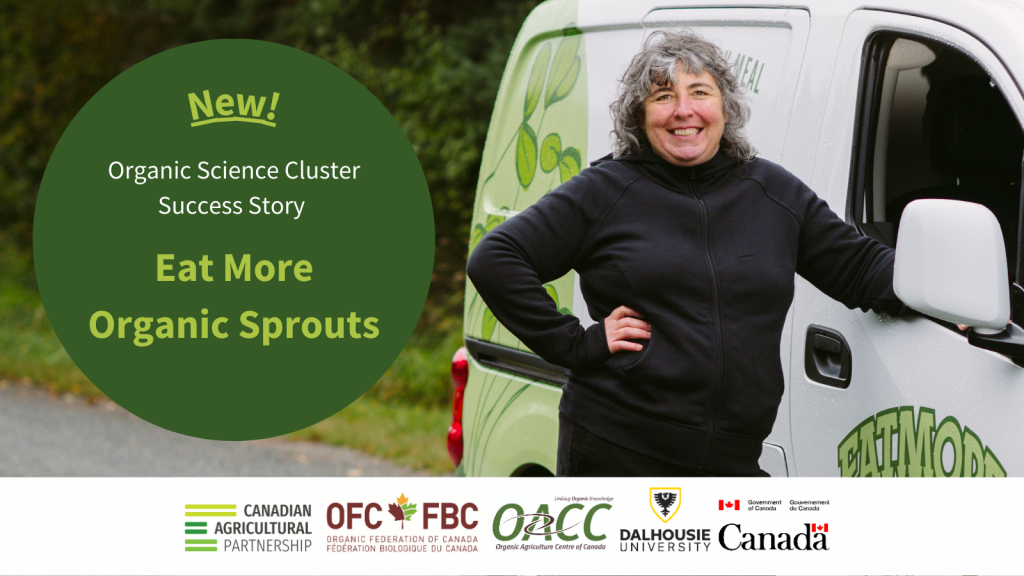
Sprouts are regarded as a healthy and nutritious green that many people love. A challenge with growing sprouts is ensuring that they are safe to eat by preventing bacteria such as E. coli from causing foodborne illnesses. In conventional farming, it is common to use chlorine to disinfect seeds during sprouting. Chlorine is not an option for organic farmers, and it can have serious occupational and health concerns.
In Organic Science Cluster II (2013-2018), researchers and industry partners went in search of an organic solution. In Activity C.24, Eatmore Sprouts and Greens partnered with organic researchers to test a variety of organic disinfection substances – and discovered a simple organic solution more effective than chlorine!
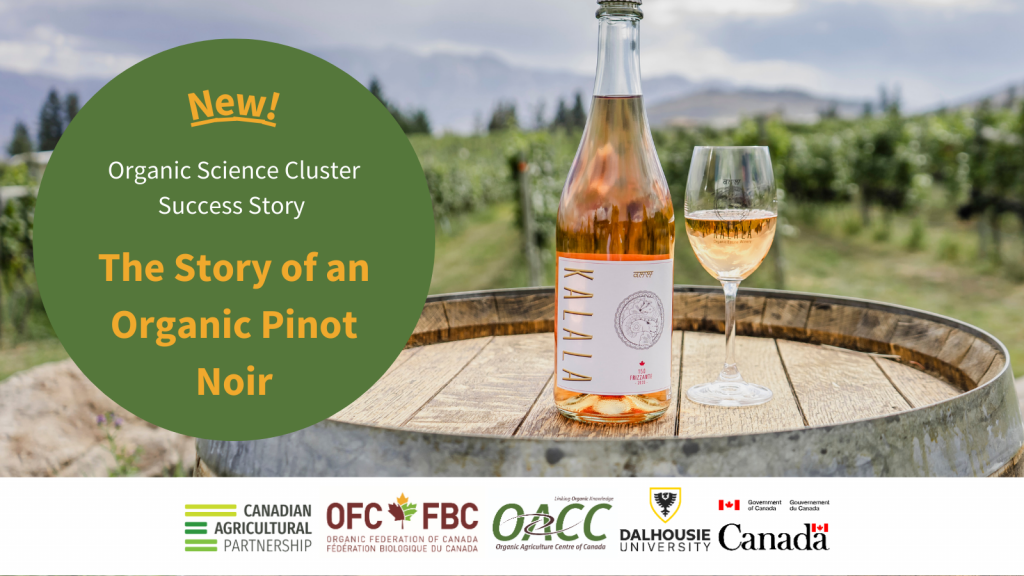
In nature, there is a symbiotic relationship between arbuscular mycorrhizal (AM) fungi and plant growth. In organic agriculture, roots of certain crops can be inoculated with the fungi to strengthen the crop and protect future growth, increasing yield. In Organic Science Cluster II (2013-2018), researchers and industry partners wondered if this relationship could be applied to organic viticulture.
In Activity B.12, Kalala Organic Estate Winery in British Columbia partnered with organic science researchers to find out. Industry partner and winery owner Karnail Singh Sidhu worked with the researchers to inoculate vine roots with AM fungi and monitor the effect on the vines.
Measuring the Impact of Organic Research - You Can Help!
Are you an organic farmer that grows fruit, vegetables, field grains or livestock?
Has Organic Research helped you?
Contact us directly at E.Ellis@dal.ca or (902) 896-2469 if you have questions or need clarification. We will be very glad to hear from you about how organic research has affected you.
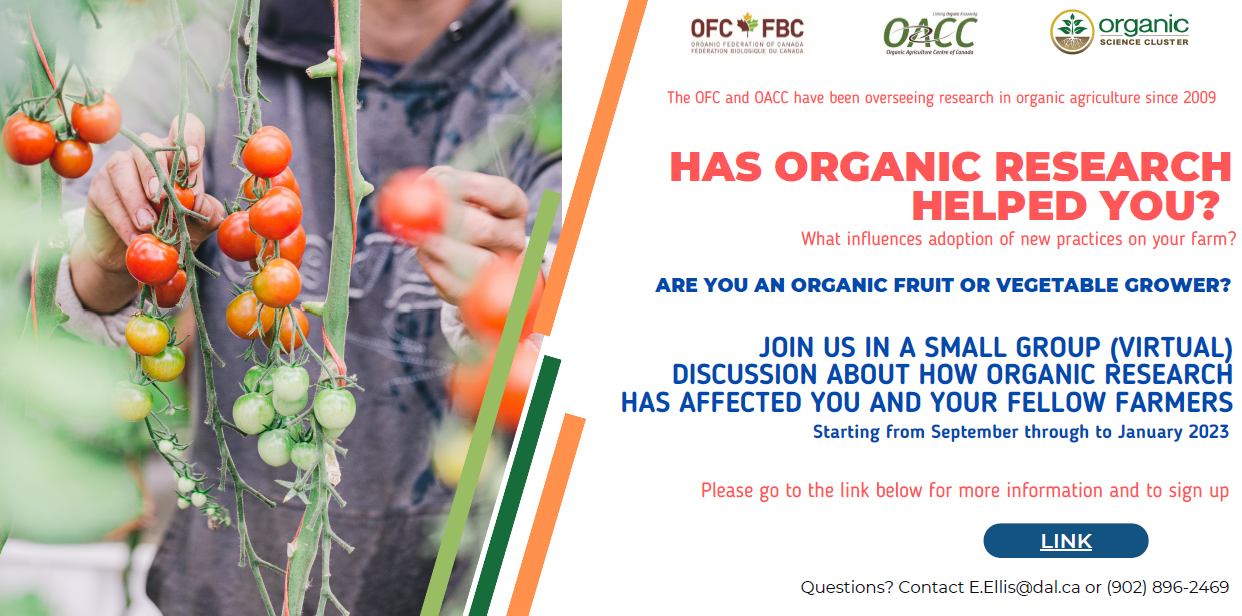

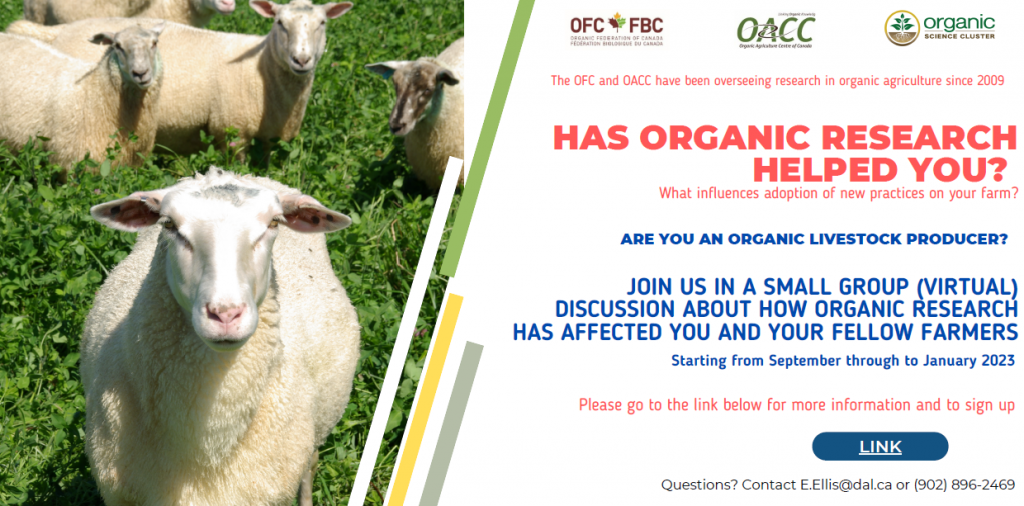
Health Canada and the CFIA to exempt
many new genetically modified organisms (GMOs) from regulation
A real threat to organics
For the last year, the organic sector, civil society, farmers unions and Canadian citizens have been expressing critical concerns regarding imminent proposals from Health Canada and the Canadian Food Inspection Agency (CFIA) to exempt many new genetically modified organisms (GMOs) from regulation.
Most imminent of these is the planned publication of the Guidance for the Seed Act, which will mark the official approval of the proposed exemption for seeds. This exemption would jeopardize food and environmental safety and eliminate the limited transparency on genetically engineered (genetically modified or GM) foods and seeds that currently exists. It would threaten the organic industry’s ability to protect itself from GMOs. Swift action is necessary to prevent Canadian regulators from causing undue harm.
OFC is celebrating 15 years!
Stay tuned for our special anniversary newsletters showcasing the diversity of the organic sector across Canada.

